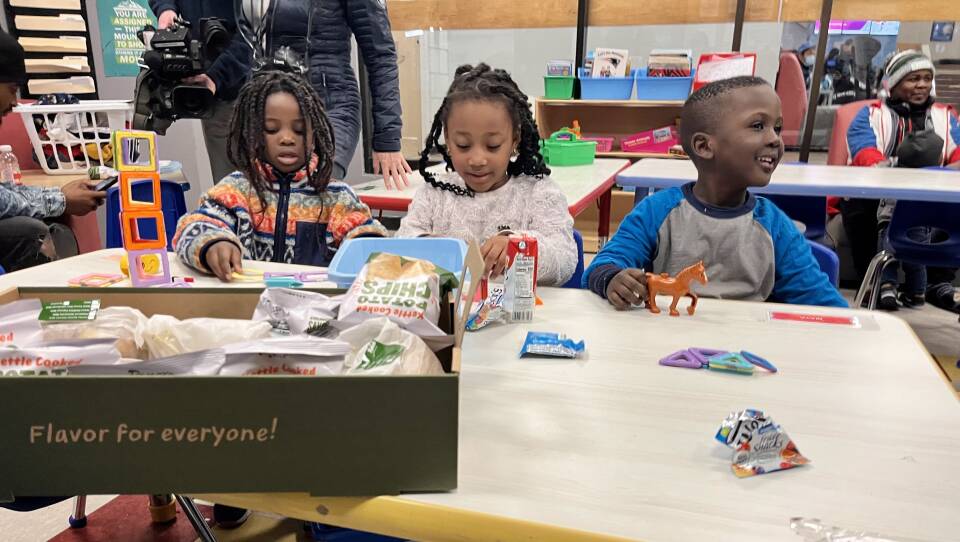For the past few days, some spaces at the Wang YMCA in Chinatown have been pulling double duty: operating community activities while also hosting migrant families with nowhere else to go.
A group exercise studio transforms into an impromptu lunchroom each afternoon, and a classroom usually used for after-school programs becomes a multipurpose staging area with snacks, luggage storage and kids’ activities.
The building is a few blocks from the Massachusetts Department of Transportation headquarters at 10 Park Plaza. State officials have set up cots in conference rooms there, where up to 25 families can spend the night if they end up waitlisted for accommodations in the state’s over-capacity shelter system.
For months, the shelter network has stretched to meet unprecedented demand , driven by both an influx of new migrant arrivals and high housing prices that remain beyond the reach of many families. As of Tuesday, there were 7,489 families enrolled in the shelter system, and 91 others on a waitlist, according to state housing officials.
The Transportation Building’s overflow shelter closes during the day, and the YMCA of Greater Boston announced Wednesday that its Chinatown branch is now providing “programming, food, and a warm and welcoming environment for migrants during the daytime hours.” Wednesday marked the third day of the effort.
Standing in a gym where students in a middle school physical education class bounced basketballs behind him, YMCA of Greater Boston CEO David Shapiro said it’s been “a little bit of human Tetris, because we're doing all our normal stuff with members.”
“So if folks need showers — and folks have been doing that — or [to] store stuff, we're finding safe areas,” he said. “We're moving things around.”
Shapiro said the Y has been coordinating with state officials, but there’s no formal contract for the services.
“It's the right thing to do for newcomers coming here,” he said.
Lt. Gen. Scott Rice, the state’s emergency assistance director, said Shapiro and the YMCA “instantly, without even asking, volunteered to help and see what they can do.”

Rice said the state is working to set up other overnight options for waitlisted families, and intends to keep the Transportation Building site running through at least Dec. 7.
“This was our first shot at it,” he said. “It carried us very safely through Thanksgiving, but now, with more families coming into the state than exiting the system, we do need greater and greater overflow.”
Rice said there have been instances where families “have to rough it overnight” when beds are not available. He said there currently are no plans to use other state office spaces for shelter, “but that's not out of the question, ever.”
“We're looking at all options, because my goal right now is if somebody is not placed into our shelter system, then they need someplace to have a roof over their head and be warm,” Rice said.
Catholic Charities Boston last week also opened a temporary “safety net shelter” for up to 27 waitlisted families. It's the first site supported by a $5 million grant program administered by the United Way of Massachusetts Bay in partnership with the Healey administration.
Homelessness prevention advocates have been calling for officials to quickly launch state-funded overflow sites and to seek longer-term solutions to the shelter capacity crisis.
Earlier this month, more than 50 organizations signed onto a letter to Gov. Maura Healey, Lt. Gov. Kim Driscoll, state Senate President Karen Spilka and House Speaker Ron Mariano, recommending ways to expand services for new immigrant families, help families move out of shelter and into permanent housing, and strengthen resources to prevent homelessness.
“In order to alleviate the shelter capacity crisis in a long-term, meaningful, and equitable way, we must make serious investments in finding safe, healthy, and affordable homes for families in crisis,” the letter said.








